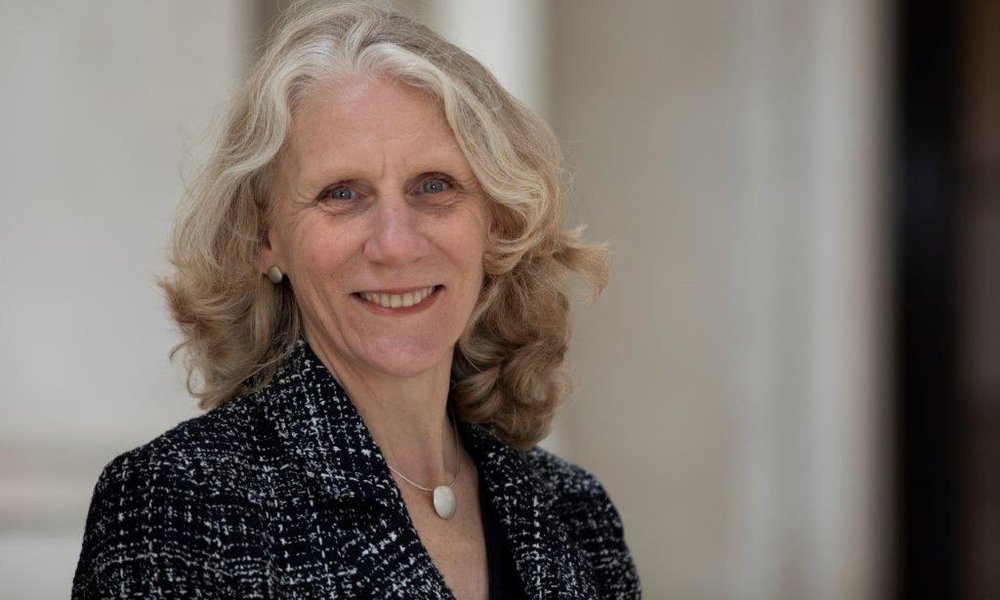News
Be bold, commit to greater investment in research and innovation in post-Brexit Britain, say National Academies
16 Nov 2016
The UK’s National Academies have come together to call for the Government to send a bold, positive message to the nation and to the world that the country will remain a leading global destination for research and innovation.
In a statement issued today (17 November), the Academy of Medical Sciences, the British Academy, the Royal Academy of Engineering and the Royal Society urge the Chancellor to show this commitment to fund, train, attract and retain the world’s brightest and best in next week’s Autumn Statement (23 November).
Together, the UK National Academies are asking for research and innovation to be put at the heart of the Government’s industrial strategy.
In this time of change, the Academies urge the Government to build on the UK’s strengths as a nation of global researchers and innovators and focus on the three following priorities:
- Create the workforce of the future, drawing on the world’s brightest and best and giving every UK citizen the opportunity to be part of this
- Cement the UK’s reputation as a destination to research, innovate and adopt new technologies, including setting a target of 3% of GDP for combined public and private R&D spending
- Capture the creativity and innovation under way in the UK to improve people’s lives
Professor Dame Ann Dowling OM DBE FREng FRS, President of the Royal Academy of Engineering said:
“The UK has much to be proud of with an excellent track record of research and entrepreneurship, but we need to send a message to the world that we are committed to building on our strengths to make Britain one of the best places in the world to research and innovate. The government’s industrial strategy must have research and innovation at its very heart, with regulation that supports and encourages the development of new technologies and processes.
“Increasing spending on research and development not only creates a more innovative society, it also sends a signal - the UK is committed to be a nation of innovators, and we need everyone, from first time entrepreneurs to global investors, to have confidence in that commitment.”
Professor Sir Robert Lechler PMedSci, President of the Academy of Medical Sciences added:
“Our status as a research powerhouse rests on the shoulders of people from across the UK, and those who have chosen to come and work here. We should celebrate this enviable position, and ensure that the next generation of ambitious thinkers, from Toxteth to Tokyo, choose the UK to make their big discoveries.
“We are urging the Government to send a bold message and build an immigration system that allows the UK to welcome talented people from across the world to join and strengthen our research community.
“People are, and always will be, the greatest asset to our research community and, in times of uncertainty, we need Government to broadcast a clear welcoming message and showcase the opportunities the UK offers.”
Lord Stern of Brentford Kt, FBA, FRS, President of the British Academy said:
“At a time of unprecedented global change, it is vital that we harness and build on the UK’s world-leading research in the humanities and social sciences, science and engineering, and medicine. The proposed creation of UK Research and Innovation (UKRI) has the potential to strengthen the impact of our research, by bringing together research and innovation, business and academia; further, it can bring a stronger strategic perspective and voice for the future for research and innovation in the UK.
“If it is to meet the post-Brexit challenges the UK faces including rekindling productivity growth, fostering an economy that works for all and redefining our relationships with world, the government must be prepared to invest further and draw fully on the expertise and creativity of this community. This is a tried and tested way to improve the well-being, productivity and economic growth of our nation".
Sir Venki Ramakrishnan FRS, President of the Royal Society said:
“I welcome the Prime Minister's personal support for science. However, for our future prosperity and growth, it is both urgent and important to send a strong message that the UK will remain a leader in science and innovation, and a place in which to invest, work and seek collaborators. The UK is one of the best destinations in the world for research, nurturing talent from home and abroad, and one of the leading places to innovate.
“Putting research and innovation at the heart of the Government’s industrial strategy will give it the best chance of success in ensuring broad economic prosperity through productivity gains. This will require a bold commitment to invest in research and innovation to build on our many strengths.”
Notes to Editors:
1. Supporting statistics (Further statistics can be found in the statement)
- With less than 1% of the world’s population and 3.2% of global R&D expenditure, the UK produces 15.9% of the world’s most highly cited research papers.
- 26% of UK R&D takes place in UK universities, but 10% of their funding for this came from the EU in 2013/14
- For every £1 spent by the government on R&D, private sector R&D output rises by 20p per year in perpetuity, by raising the level of the UK knowledge base.[1]
- 79%of the public agree that even if it brings no immediate benefits, scientific research which advances knowledge should be funded by government.[2]
- In 2015, over half of the UK’s research output was the result of an international collaboration and these collaborations are increasing.[3]
- UK-based researchers returning after time working abroad are more productive in terms of articles published than average.[4]
- A third of UK start-ups were founded by non-UK nationals and 51% of UK start-up employees come from outside the UK.[5]
- 39% of UK firms have difficulties recruiting staff with skills in science, technology, engineering and mathematics.[6]
- The UK ranks 4th out of university-industry research collaborations in the Global Innovation Index 2015. In the 2016 Global Innovation Index, the UK was ranked 3rd overall out of 128 countries[7].
2. The Royal Society is a self-governing Fellowship of many of the world's most distinguished scientists drawn from all areas of science, engineering, and medicine. The Society's fundamental purpose, reflected in its founding Charters of the 1660s, is to recognise, promote, and support excellence in science and to encourage the development and use of science for the benefit of humanity.
The Society's strategic priorities are:
- Promoting science and its benefits
- Recognising excellence in science
- Supporting outstanding science
- Providing scientific advice for policy
- Fostering international and global cooperation
- Education and public engagement
For further information please visit http://royalsociety.org. Follow the Royal Society on Twitter at http://twitter.com/royalsociety or on Facebook at http://www.facebook.com/theroyalsociety .
For media enquiries please contact Victoria Druce Tel: 020 7451 2510 Email: [email protected] or Bronwyn Friedlander Tel: 020 7451 2514 Email: [email protected]
3. The Academy of Medical Sciences is the independent body in the UK representing the diversity of medical science. Our mission is to promote medical science and its translation into benefits for society. The Academy’s elected Fellows are the United Kingdom’s leading medical scientists from hospitals, academia, industry and the public service.
We work with them to promote excellence, influence policy to improve health and wealth, nurture the next generation of medical researchers, link academia, industry and the NHS, seize international opportunities and encourage dialogue about the medical sciences. www.acmedsci.ac.uk
For further information contact Giorgio De Faveri, Senior Press Officer at [email protected], 02031413206, 07885903528.
4. The British Academy for the humanities and social sciences. Established by Royal Charter in 1902. Its purpose is to inspire and support high achievement in the humanities and social sciences throughout the UK and internationally, and to promote their public value. For more information, please visit www.britishacademy.ac.uk
Follow the British Academy on Twitter @britac_news.
For further information, please contact the Press Office on [email protected] or 020 7969 5227.
5. Royal Academy of Engineering. As the UK’s national academy for engineering, we bring together the most successful and talented engineers for a shared purpose: to advance and promote excellence in engineering. We provide analysis and policy support to promote the UK’s role as a great place to do business. We take a lead on engineering education and we invest in the UK’s world-class research base to underpin innovation. We work to improve public awareness and understanding of engineering. We are a national academy with a global outlook.
We have four strategic challenges:
- Make the UK the leading nation for engineering innovation
- Address the engineering skills crisis
- Position engineering at the heart of society
- Lead the profession
For more information please contact Aaron Boardley at [email protected] or 020 7766 0655
[1] Jonathan Haskel, Alan Hughes, Elif Bascavusoglu-Moreau (2014) The Economic Significance of the UK Science Base A REPORT FOR THE CAMPAIGN FOR SCIENCE AND ENGINEERING
[2] Ipsos MORI 2014
[3] Elsevier (2013) International comparative performance of the UK research base 2013
[4] Department for Business, Innovation and Skills (2013) International Comparative Performance of the UK Research Base – 2013
[5] European Start Up Monitor (2015)
The European Startup Monitor represents more than 2300 start-ups with more than 31,000 employees in all 28 European Member States. Data from 13 countries surveyed.
[6] CBI/Pearson (2014) Gateway to growth:CBI/Pearson education and skills survey 2014
[7] The Global Innovation Index 2016
Contact the press office
For further information contact the Press Office on [email protected] / 07500 010 432.

